1. Early Birds vs. Night Owls
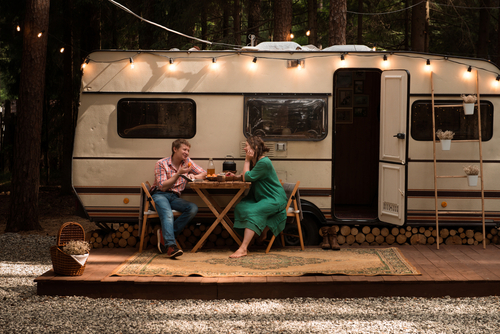
Some RVers are up at dawn, ready to hit the road while the world is still waking up. They thrive on quiet mornings, fresh coffee, and empty highways. Night owls, on the other hand, prefer late starts and driving under the stars. This clash can create tension at campgrounds where parking spots and amenities get crowded.
Early risers might get annoyed when night owls keep generators running or headlights on after dark. Meanwhile, night owls see early birds as rigid and uptight. Both are just trying to enjoy their travel style, but timing can turn into an unspoken battlefield. Respecting quiet hours often becomes the middle ground.
2. Boondocking Purists vs. Full-Hookup Lovers
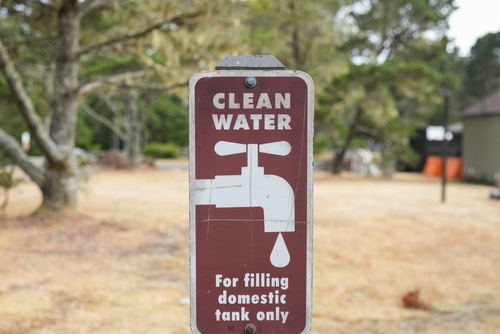
Boondocking, or dry camping, appeals to those who love self-sufficiency and solitude. They pride themselves on solar panels, water conservation, and minimal impact. Full-hookup enthusiasts, however, value convenience and comfort. They want electricity, water, and sewer hookups at every stop.
The debate isn’t just about preference—it’s about lifestyle identity. Boondockers may view full-hookup users as dependent or spoiled. Full-hookup fans might see boondockers as overly hardcore or impractical. Each camp believes their method is the “right” way to RV.
3. Generators On or Off?

Generator use is one of the most common silent conflicts. Some RVers run them freely for AC, coffee makers, or electronics. Others rely on solar or in-vehicle power and see generators as noisy nuisances. Campground regulations often add another layer of tension.
Even brief generator use can ignite complaints in tight quarters. Those who avoid generators view them as disruptive to peace and nature. Those who use them feel it’s essential for modern RV comfort. It becomes a balancing act between lifestyle and etiquette.
4. Pet Policies: Fur Friends or No-Go?

Travelers with dogs or cats bring a lot of joy to their RVing experience. But not everyone appreciates barking dogs or roaming cats. Some campgrounds welcome pets everywhere, while others are strict about leashes and quiet. This discrepancy can lead to quiet resentment among campers.
Pet owners argue their companions are well-behaved and enrich the community vibe. Non-pet RVers may worry about allergies, messes, or safety. Both sides have valid points, yet tensions persist over seemingly small details. Mutual respect is key, but it’s rarely enforced outside campground rules.
5. Overnight Parking: Walmart vs. Dispersed Sites

Many RVers rely on Walmarts, rest areas, or truck stops for quick overnight stays. Others prefer dispersed camping or official campgrounds for a quieter experience. This difference in approach can frustrate purists. They see roadside parking as a shortcut that disrupts the community’s image.
Roadside parkers value convenience, accessibility, and free options. Purists often want privacy, natural surroundings, and minimal human interference. Both groups are traveling efficiently, just on very different terms. Disagreements often flare when one style dominates a shared area.
6. Propane vs. Electric Cooking
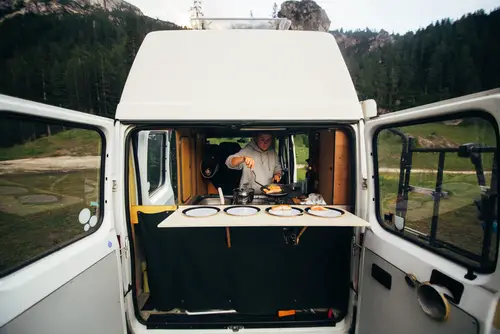
Some RVers swear by gas stoves for authentic cooking and flexibility. Others have fully electric kitchens powered by solar or campground hookups. The friction arises in shared cooking spaces or campground kitchens. People feel strongly about their preferred energy source.
Gas users cite speed and reliability, especially off-grid. Electric users value clean energy, safety, and modern appliances. Differences can lead to subtle judgments about skill or “RV authenticity.” Neither method is objectively better, yet the debate lingers.
7. Road Trips vs. Stationary Stays
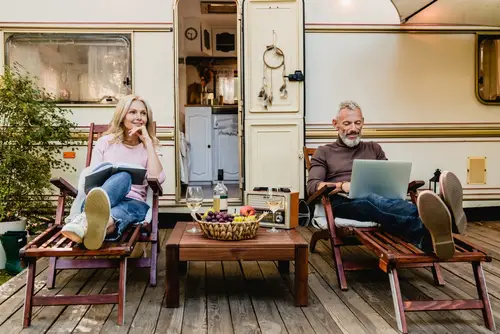
Some travelers love hitting the highway, exploring multiple states in a week. Others prefer parking in one scenic spot and settling in for a month. The divide often sparks subtle envy or judgment. Road-trippers see long-term stayers as stagnant, while stayers see movers as restless.
Both approaches have perks: variety versus depth of experience. But conflicts emerge in campgrounds with limited space. The debate over “how to RV properly” is surprisingly common. Every style has its passionate advocates.
8. Strict Schedulers vs. Go-With-The-Flow Travelers
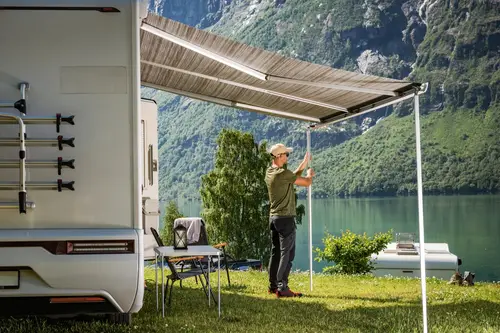
Some RVers meticulously plan routes, reservations, and sightseeing stops. Others prefer spontaneity, finding joy in serendipitous adventures. Tension arises when scheduling conflicts interfere with campground resources. People judge others for either overplanning or underplanning.
Organized travelers argue that planning avoids stress, wasted time, and empty campsites. Free spirits counter that flexibility enhances discovery and reduces burnout. Each group secretly questions the other’s judgment. But both styles can coexist with patience and compromise.
9. Towing Tendencies: Big Rigs vs. Solo RVs
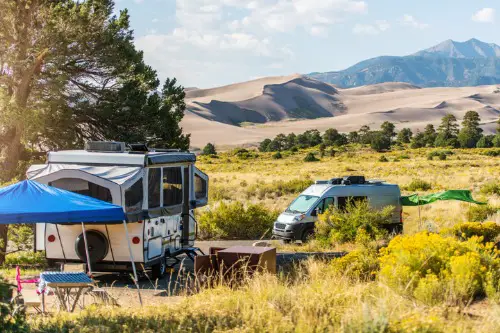
Towing a car or trailer behind an RV makes travel convenient for errands or exploration. Some RVers see towing as cumbersome or unsafe on narrow roads. Others without tow vehicles can feel limited by their lack of mobility. The silent divide often comes up in discussions about campsite size or road etiquette.
Big rig users appreciate the versatility but must navigate restrictions carefully. Solo RVers value simplicity and ease of maneuvering. Differences can spark debates about who is “better equipped” for adventure. Both approaches have trade-offs, making neither inherently superior.
10. Community vs. Solitude
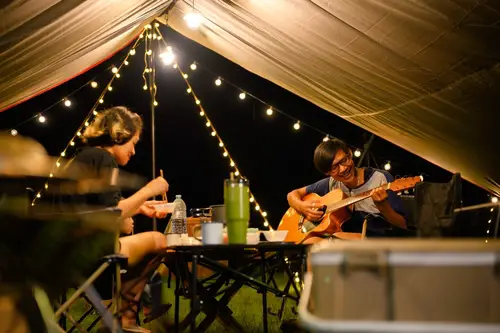
Some RVers actively seek social connections, joining rallies, clubs, or campground activities. Others treasure isolation and silence, avoiding interaction whenever possible. Conflicts appear when extroverts’ energy clashes with introverts’ need for space. The divide often surfaces in shared campground areas.
Community-focused travelers argue that camaraderie enhances the experience. Solitude lovers value peace and personal reflection. Both groups define the RV lifestyle differently. Compromise comes in respecting boundaries while allowing engagement.
11. Internet Reliance vs. Off-Grid Disconnect

Wi-Fi and cell service are essential for some RVers, especially digital nomads or remote workers. Others see connectivity as unnecessary, choosing to unplug completely. The clash can appear in campgrounds with limited bandwidth. People can silently judge those who choose convenience over “authentic” travel.
High-tech travelers need steady connections to work, plan, and navigate. Off-grid campers relish freedom from notifications and screens. Both approaches are valid lifestyles but often misunderstood by the other. Compromise usually means respecting access needs and privacy simultaneously.
12. Eco-Conscious Practices

Some RVers meticulously reduce waste, recycle, and conserve water. Others prioritize comfort or convenience over environmental impact. Campground etiquette can become a subtle battlefield when resource use is involved. Judgments about “good” RVing ethics emerge quietly but persistently.
Eco-conscious travelers see overuse as disrespectful to nature and the community. Casual campers may see stringent practices as overcomplicating simple living. Both approaches stem from different priorities. Awareness and compromise usually prevent bigger disputes.
13. Nighttime Noise Levels
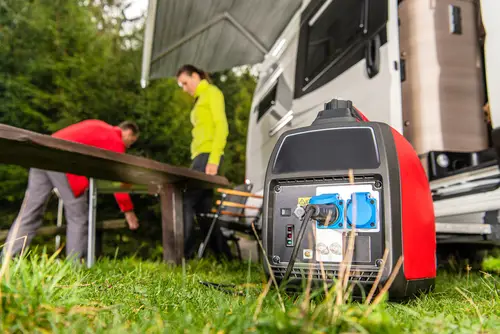
Some RVers are meticulous about quiet after dark, avoiding generators, music, or loud conversations. Others don’t mind a little activity, assuming everyone is used to it. Tension arises when noise disrupts sleep or peace. Campground rules can help, but enforcement is inconsistent.
Quiet campers often judge others for being careless or inconsiderate. Those less concerned may see strict rules as controlling or unnecessary. The divide isn’t about malice—just differing tolerance levels. Respectful communication usually resolves most conflicts.
14. Personal Space in Tight Campgrounds

Some travelers prefer lots of space between RVs, valuing privacy and boundaries. Others are comfortable with cozy setups and social closeness. The divide becomes apparent in busy campgrounds or peak season. People often silently resent neighbors who encroach on their preferred space.
Those valuing space invest in larger sites or off-peak travel. Those comfortable with closeness embrace communal energy. Differences can lead to subtle tension, even without confrontation. Mutual respect and etiquette help maintain harmony.
This post 14 Travel Habits That Quietly Divide the RV Community was first published on Greenhouse Black.
